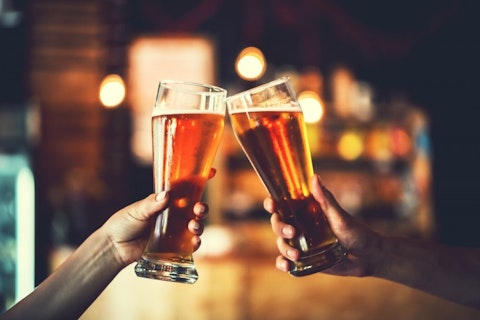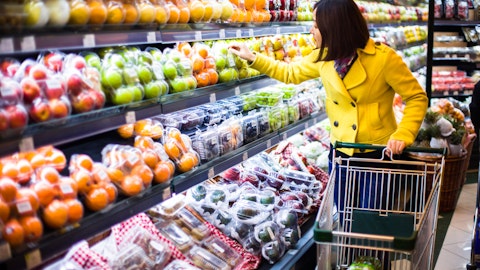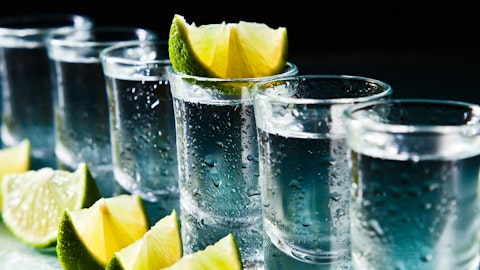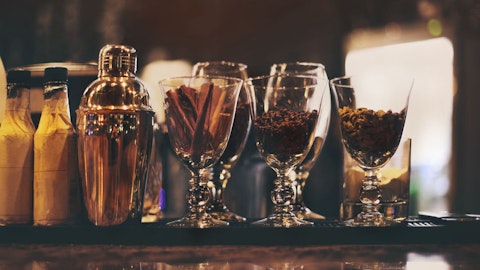Ever wondered what’s in your beer? Or are you one of those people that trusts that beer manufacturers know what they’re doing and pop open a can or bottle to enjoy its contents without giving much thought to what’s actually in that can or bottle? In any case, you might be interested to know that making beer involves more than just water, barley, hops and yeast. In some cases, some of the stuff that “floats around” in your beer just might give you the heebie-jeebies and may even cause you to reconsider beer as your favorite drink.
Beer has been around for thousands of years and is currently the third-most popular drink after water and tea, which also makes it the most consumed alcoholic beverage. The popularity of beer is defined by a bunch of factors, including its taste and relatively low alcohol content, which usually gives a person a nice buzz without the fear of getting wasted (unless it’s a strong beer or is consumed in large quantities). However, beer also has some disadvantages to other products. One of the most harmful effects of beer is its contribution to weight gain. Beer contains a lot of empty calories (a regular beer can have as much as 200 calories) and very little nutrients. It can also interfere with blood sugar levels, which may cause signals to be sent to your brain telling you that you’re hungry and causing you to eat whatever you can find when you don’t really need to.
Because beer has been around for so long and has even become the national symbol of some countries and cities, it has had a long time to evolve. Whereas beer was originally brewed on a domestic scale by individual households, it currently represents a global business dominated by several large multinational companies like Anheuser Busch Inbev NV (ADR) (NYSE:BUD), which has a market share of over 30%, and Molson Coors Brewing Co (NYSE:TAP).
Since one of the keys to success in any business is to build a product that is better or at least different from others, many companies have implemented changes to their beer manufacturing processes over time. This is especially the case for smaller companies that don’t have the resources to compete with large corporations like Anheuser Busch Inbev NV (ADR) (NYSE:BUD) and Molson Coors Brewing Co (NYSE:TAP), which is why they have to focus on uniqueness.

Ievgenii Meyer/Shutterstock.com
In their pursuit of that uniqueness factor, some beer makers might have gone too far. For example, an Oregon-based brewery released a beer that was made with yeast that was cultured from the beard hairs of its brewmaster. Other examples of strange ingredients used to brew beer include bull testicles, squid ink, and even the poop of a civet that feeds on coffee beans (which is also used to make coffee, naturally).
However, most companies settled for more traditional ingredients in order to create a diversified portfolio of beers, which is why in almost every supermarket you can find strawberry-flavored, orange-flavored, banana-flavored, and other similarly-flavored fruity beers. I’ve even come across vodka-flavored beer, probably for people who see some meaning in the popular Russian phrase that “beer without vodka is a waste of money”, but don’t have the balls to actually mix the two.
On the following pages we examine isinglass, cochineal, and GMOs to find out what’s in your beer.
Isinglass and Cochineal in Beer
Aside from ingredients meant to make their beer taste better, there are also some ingredients that have sparked controversy. One of them is isinglass. While its name may sound pretty innocent, it is actually a bit gross. Isinglass is a gelatinous-like substance that is made from the air-filled swim bladders of fish. It is often added to cask beers in order to clarify the brew and to eliminate some impurities. During the brewing process, any particles and yeast cells stick to isinglass, which turns into a jelly-like mass that sinks to the bottom of the cask. Even though beer makers remove it, some isinglass can still remain in the brew.
One of the most popular beer-makers that came under fire because of its use of isinglass is Guinness, owned by Diageo plc (ADR) (NYSE:DEO). The use of the animal-derived product created outrage among vegetarian and vegan beer drinkers, which lead to Guinness promising to solve the problem. The company recently announced that it has indeed eliminated the use of fish guts from its manufacturing process. Nevertheless, other companies still use isinglass and there are other animal products used in beer which vegans should be aware of like honey and lactose.
Another ingredient that you might not have known is in your beer is bugs. Well, not technically bugs, but a dye made from cochineal that has the same name. The use of cochineal is not that bad, because it’s a very commonly-used ingredient in the food industry (take a look at this list of 7 foods made with crushed bugs for examples) and has been used for centuries, with the Aztec and Maya peoples in America using it to dye stuff. There even was a myth going around that cochineal was used to give Coca-Cola its color. When it comes to beer, cochineal is also used, with one California brewer using it to create a pink beer. Even though it’s completely harmless, the use of cochineal has also sparked outrage among vegetarians and vegans. Another company that came under fire because of its use of cochineal was Starbucks Corporation (NASDAQ:SBUX), which had used the dye to color some of its drinks. Starbucks also promised to forego the use of cochineal in the future.
GMOs Are Everywhere
Then there are Genetically Modified Organisms or GMOs, which are present in many beer brands in the form of grains. The use of GMO grains in beer is controversial and even though consumers might not agree with it, it’s unlikely that they will stop, because the use of some GMOs is allowed by health, food, safety, and ingredient regulations, especially in the U.S.
The controversy surrounding GMOs, not only in beer but across the entire food industry, is that people don’t really know what they are and they often get associated with mutations, cancer, the plague, the Four Horsemen of the Apocalypse, and just about anything else that is considered evil. The truth is that GMOs are not as bad as the internet wants us to think. Cultures usually evolve by themselves over a long period of time and genetic modification simply allows scientists to speed up the process. This is how scientists can create crops that are more resistant to drought, to viruses, and to some harmful bugs. In turn, this can lead to better crop yields, which is very important as the world population grows and requires more food.
All in all, the fact that beer companies use isinglass, cochineal, and GMOs in their manufacturing processes has not been a secret, as their use is allowed by regulations and doesn’t have a harmful effect on consumers’ health. Some brewers adapted and discarded the use of some ingredients in order to address issues that caused concerns among certain consumer groups. However, generally speaking, the only thing that is likely to change once you know that your favorite brew might be made using fish guts, crushed bugs and/or some genetically-altered ingredients is your perception of it. Either way, it’s good to know what’s in your beer, and now you do.
Disclosure: None







